#Stanley Fung
Text

Stanley Fung: from the "Self-abased Gaze" series.
https://www.stanleyfung-art.com/
9 notes
·
View notes
Photo

The Lunatics - Derek Yee 1986
27 notes
·
View notes
Text
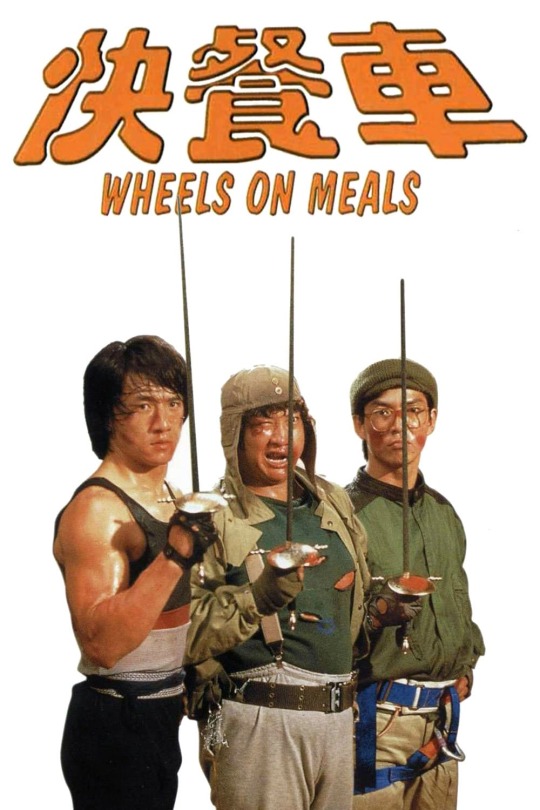


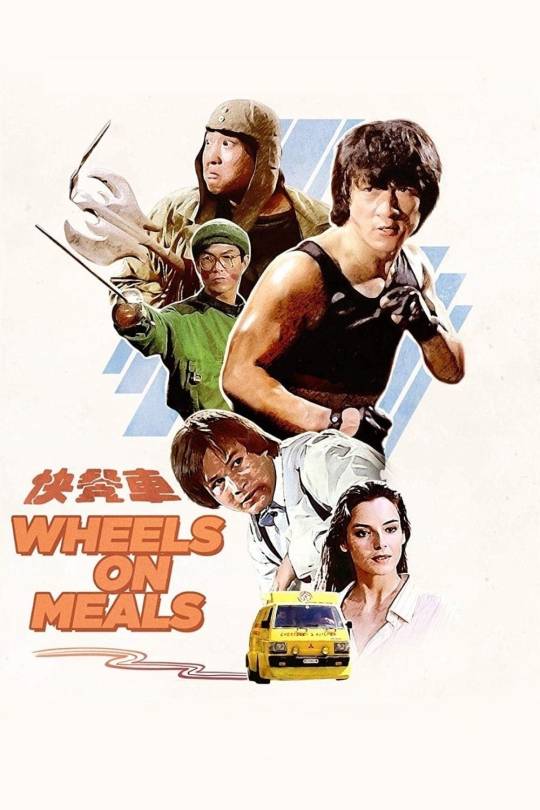

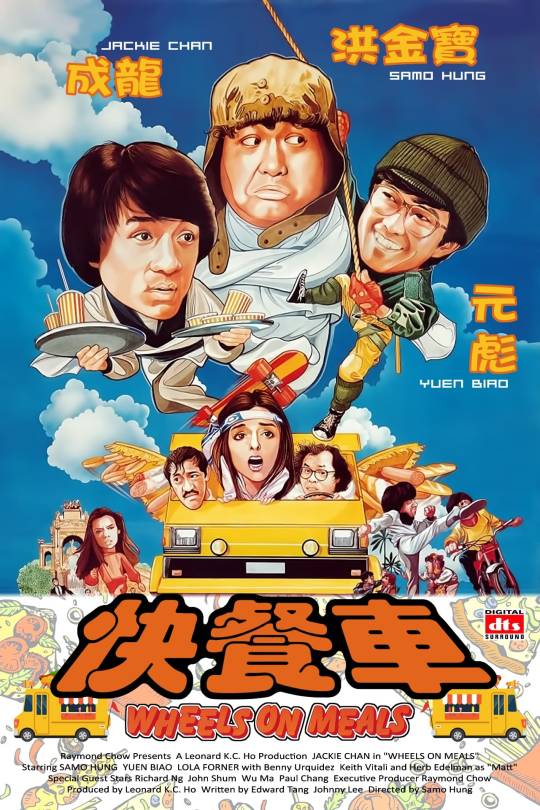
W a t c h i n g
看 電 影
I'm not as impressed by it. I know it's seen as a classic, but it took an hour for the real action to start.
I think Jackie and Sammo have better collaborations and individual movies.
#WHEELS ON MEALS (1984)#JACKIE CHAN#SAMMO HUNG#YUEN BIAO#LOLA FORNER#Benny Urquidez#Keith Vitali#Paul Chang Chung#Richard Ng#John Shum Kin-Fun#Wu Ma#Herb Edelman#Stanley Fung#José Sancho#Blackie Ko Shou-Liang#Chin Ka-Lok#MARTIAL ARTS#ACTION MOVIE#COMEDY#HONG KONG CINEMA#快餐車#成龍#洪金寶#元彪
1 note
·
View note
Photo
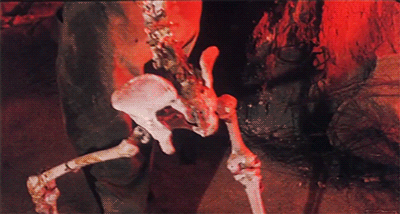
the classics never die
763 notes
·
View notes
Text
MY LUCKY STARS:
Crook helps cop friend
Find crooked cop in Japan
With bumbling buds
youtube
#my lucky stars#random richards#poem#haiku#poetry#haiku poem#poets on tumblr#haiku poetry#haiku form#poetic#criterion collection#criterion channel#sammo hung#jackie chan#Charlie chin#Stanley Sui Fan Fung#Richard Ng#Eric tsang#Sibelle Hu#Barry Wong#Cheuk Hon Szeto#kin lo#Youtube
1 note
·
View note
Text
#Hong Kong Polytechnic University#PolyU Seige#antielab#反送中#hong kong#hong kong free press#Yau Ma Tei#Stanley Chan#Hung Hom#politics#Tang Tsun Kit#Chow Fung yin#Cheung Tsz Ching#Reaf Yuen#Chester Wan#Wu Hoi Wai#Xu Peng Yi#Yip Wing San#news
0 notes
Photo

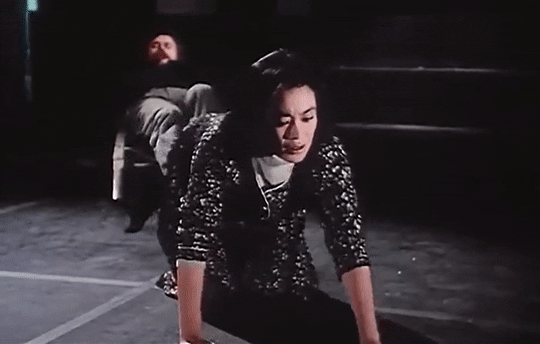

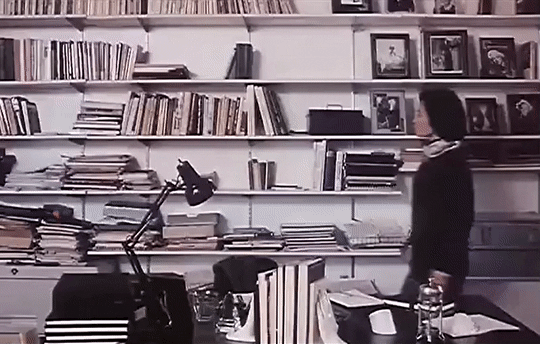

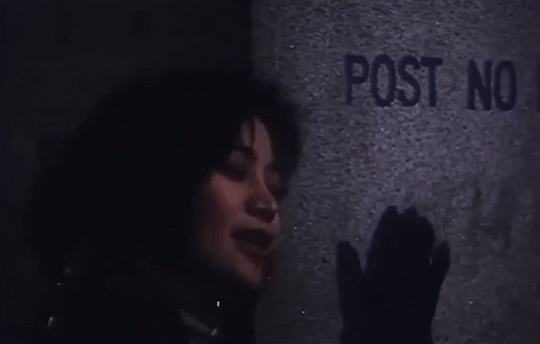


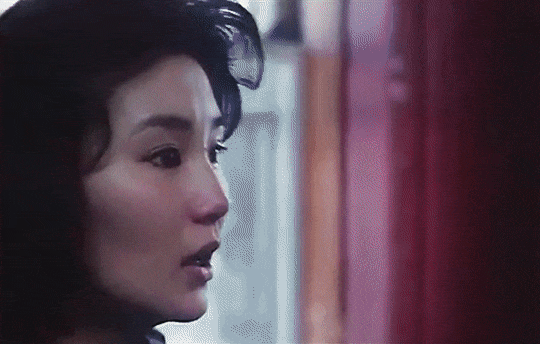

人在紐約 | FULL MOON IN NEW YORK (1989)
dir. Stanley Kwan
Lee Fung-jiau is from Hong Kong, a closeted lesbian who runs a Chinese restaurant in New York and also dabbles in real estate. Wang Hsiung-ping is from Taiwan, and has come to New York to become an actress, spending much of her time and money on acting lessons. Zhaohong comes from mainland China and has just gotten married to a husband of Chinese descent, but who, along with his family, have been utterly assimilated by American culture, to the point that Zhaohong finds it difficult to adapt. Sharing a common ancestry, the three girls eventually become friends, meeting regularly at Fung-jiau’s restaurant and getting drunk together while trying to find their own identity in the alienating, inhospitable setting that is New York.
(link in title)
#lgbt cinema#lesbian cinema#full moon in new york#ren zai niu yue#hong kong cinema#us cinema#lgbt#lesbian#hong kong#usa#lgbt movie#lesbian movies#hong kong movies#lgbt film#lesbian film#hong kong film#lgbt media#lesbian media#queer cinema#asian cinema#east asian cinema#80s#1980s#1989#1980s movies#1980s film#1980s cinema#80s cinema#sylvia chang#maggie cheung
131 notes
·
View notes
Text
Kaoru and Hong Kong Movies

X ( Long post!! )
It's been a while, but I found that Kaoru mentioned a lot of classic Hong Kong movies in this tweet.
These are the movies I used to watch when I was a kid, and I never thought I'd ever hear them from Kaoru one day, so I want to give a brief introduction to these movies. 😀
01. スパルタンX (Spartan X)
繁體中文:快餐車 / English: Wheels on Meals
Wheels on Meals is a 1984 Hong Kong martial arts action comedy film written and directed by Sammo Hung (洪金寶), with action choreographed by Jackie Chan (成龍). The film stars Jackie Chan (成龍), Sammo Hung (洪金寶), Yuen Biao (元彪), Lola Forner, Benny Urquidez and José Sancho.
In 1984, it was adapted into the video game Spartan X (released as Kung-Fu Master internationally).
The final fight between Jackie Chan and Benny Urquidez
🎥 Best Fight Scene 👇
youtube
02. 五福星 (ごふくせい)
繁體中文:奇謀妙計五福星 / English: Winners and Sinners (or 5 Lucky Stars)
Winners and Sinners is a 1983 Hong Kong action comedy film written and directed by Sammo Hung (洪金寶), who also starred in the film. The film co-stars Jackie Chan (成龍) and Yuen Biao (元彪), the latter serving as one of the film's action directors.
The film is followed by My Lucky Stars (福星高照) and Twinkle, Twinkle Lucky Stars (夏日福星), insofar as the "Five Lucky Stars" concept (福星系列) and many of the same actors return in those latter films. However, the character names and indeed their roles differ - Stanley Fung's character is the nominal "leader" of the quintet in Winners and Sinners (奇謀妙計五福星), whereas Hung's character takes the mantle in the latter films.
🎥 Best Fight Scene 👇
youtube
03. 霊幻道士 (れいげん どうし)
繁體中文:殭屍先生 (or 暫時停止呼吸) / English: Mr. Vampire
As this is one of my favorite movies, I will introduce more 😃
Mr. Vampire is a 1985 Hong Kong comedy horror film directed by Ricky Lau (劉觀偉) and produced by Sammo Hung (洪金寶).
The vampire of the film is based on the jiangshi (殭屍/ㄐ一ㄤˉ ㄕˉ), the hopping corpses of Chinese folklore (similar to both zombies and vampires).
"殭" means "to die immortal" (死而不朽) or "stiff" (about the same as "僵"), and "屍" means "dead body".
The film was released under the Chinese title 暫時停止呼吸 (literally: Hold Your Breath for a Moment) in Taiwan. This is because most (not all) of the 殭屍 can't see with their eyes, they can only tell where people are by their breathing, so if you hold your breath you won't get caught by 殭屍.
🎥 ※ This video is dubbed in Mandarin (with Eng subs) 👇
youtube
The film is set in the late Qing Dynasty to the early Republic of China (清朝末年~民國初期), that is, the late 19th century to the early 20th century, and most of the 殭屍 are wearing the costumes of Qing Dynasty officials.
(That's why, when I first read about the Qing Dynasty (清朝) in the history textbook, I wondered why people were all dressed as 殭屍 🤣)
🎥 ※ This video is dubbed in Mandarin (with Eng subs) 👇
youtube
The box office of Mr. Vampire success led to the creation of a Mr. Vampire franchise, with the release of four sequels directed by Ricky Lau (劉觀偉) from 1986 to 1992, and subsequent similarly themed films with different directors released between 1987 and 1992, with Lam Ching-ying (林正英) as the lead for the majority of them.
The film was the breakthrough success of the jiangshi genre, a trend popular in Hong Kong during the 1980s, and established many of the genre's recognisable tropes.
🎥 ※ This video is dubbed in Mandarin (with Eng subs) 👇
youtube
I highly recommend this movie!!
Also, I love the the movie song - Ghost Bride (鬼新娘).
🎥 ※ This song is in Cantonese (廣東話/粵語). 👇
youtube
04. Mr.Boo
繁體中文:半斤八両 / English: The Private Eyes
The Private Eyes is a 1976 Hong Kong comedy film written, directed by and starring Michael Hui (許冠文) and co-starring his brothers Samuel Hui (許冠傑) and Ricky Hui (許冠英) as well as Shih Kien (石堅) and Richard Ng (吳耀漢) in his second film role. Sammo Hung (洪金寶) served as the film's action director and Jackie Chan (成龍) was also a stuntman.
In 1979, when Jiahe Corporation (嘉禾公司) promoted Bruce Lee's (李小龍) kung fu film in Japan, it added "The Private Eyes" and changed its propaganda department to "Mr Boo!" as a call to action, it became a huge hit, earning a billion yen at the box office in Japan, followed by several Huh Brothers (許氏兄弟) comedies featuring "Mr. Boo!" as the title.
It is worth mentioning that Hsu Kuan-chieh's (許冠傑) character was voiced by the famous Japanese actor Kitano Takeshi (北野武). In 1981, Takakura Ken (高倉健) starred in "駅 STATION ", there are also male and female protagonists watching "The Private Eyes" kitchen fighting scenes. Japanese manga master Akatsuka Fujio (赤塚不二夫) has written the preface and Japanese lyrics for this film.
🎥 The kitchen fighting scenes 👇
youtube
#吳耀漢
繁體中文:吳耀漢 / English: Richard Ng
Kaoru mentioned 吳耀漢 in the tag because he passed away in April 2023. 吳耀漢 is a famous actor in Hong Kong, and he has appeared in all the movies mentioned above except Mr. Vampire.
※ In fact, 吳耀漢 appeared in 霊幻道士3 (繁體中文:靈幻先生 / English: Mr. Vampire III), a sequel to the Mr. Vampire series, which was released in 1986. I guess this is the movie Kaoru was referring to.
Speaking of 吳耀漢, I would like to recommend another Hong Kong movie: Rigor Mortis
05. Rigor Mortis
繁體中文:殭屍(2013) or 殭屍 七日重生
Rigor Mortis is a 2013 Hong Kong horror film directed by Juno Mak (麥浚龍) and produced by Takashi Shimizu (清水崇,the director of 呪怨 Juon). The film is a tribute to the Mr. Vampire film series. Many of the former cast are featured in this film: Chin Siu-ho (錢小豪), Anthony Chan (陳友), Billy Lau (樓南光) and Richard Ng (吳耀漢). *吳耀漢 is the 殭屍 on the poster. 👆
Unlike the usual Hong Kong comedies, the overall atmosphere in Rigor Mortis is very depressing. The whole movie is full of nostalgia and reluctance for Mr. Vampire, which reminds people of the glory of Hong Kong jiangshi movies back in the day. Personally, I think it is the best jiangshi movie of the last 20 years.
🎥 OFFICIAL TRAILER 👇
youtube
🎥 The Hallway Scene in the movie also uses the song Ghost Bride (鬼新娘), and the song is even more creepy as it slows down. 👇
youtube
--- --- ---
It's really happy to know that Kaoru has watched these movies.
💜 Thanks for reading 💜
Btw, today (2023/08/30, the 15th day of the 7th lunar month) is The Ghost Festival (中元節).
#kaoru#薰#movie#hong kong movies#香港電影#horror movies#long post#yinfu writing#twitter#youtube#殭屍#童年回憶#最有安全感的英叔#最近我才知道演殭屍的是元華
21 notes
·
View notes
Text

Ieri ho finito di vedere la serie tv "Inside Man".
Lo sceneggiatore è Steven Moffat, lo stesso di Sherlock e di Dracula serie tv della BBC e già questo è una garanzia.
Se poi gli attori protagonisti sono Stanley Tucci e David Tennant qualcosa di buono sicuramente esce anche se il copione è la bolletta dell'Enel.
L'idea è forse un po' già vista: un uomo condannato a morte dalla cella del carcere in cui è rinchiuso risolve casi di omicidio e altri misteri, in pratica un misto tra Hannibal Lecter e Sherlock Holmes. Fin qui una serie classica poliziesca dove Moffat è il solito Moffat.
Poi però c'è il personaggio di Tennant, un prete anglicano, sposato e con un figlio adolescente, una brava persona che per una serie (anche) incredibile di circostanze si trova ad essere l'aggressore e poi il sequestratore di una donna è anche un assassino. Un dramma psicologico angoscioso che lascia con l'amaro in bocca.
È come se le due storie viaggiassero su binari paralleli e ogni tanto sembrano convergere. In realtà sono due storie differenti anche se ben intrecciate. Differenti a cominciare dai Paesi ove le due vicende si svolgono: il condannato a morte è negli USA mentre Il vicario è in Inghilterra.
Nei pochi episodi vi sono anche altri fatti collaterali, casi che il personaggio di Tucci risolve coadiuvato in minima parte da un altro detenuto: un serial killer, anche lui condannato a morte, dalla memoria fotografica eccezionale che in pratica funge da registratore durante i colloqui che il personaggio di Tucci ha con chi vuole affidargli i vari casi.
Una serie che in realtà ne racchiude due. Due serie che forse potrebbero vivere separatamente e che però convivono.
Se la convivenza è riuscita sta allo spettatore giudicarlo.
A me, spettatore, l'esperimento è piaciuto.
Però ripeto: Moffat potrebbe scrivere qualunque cosa e a me piacerebbe sempre. Tucci può interpretare pure una cassapanca e lo troverei strepitoso. Tennent è così bravo che c'è gente ha trovato bello Jessica Jones grazie a lui.
Consigliata assolutamente anche per i temi trattati.
14 notes
·
View notes
Text

Thursday, May 2, 2024
"Mr. Go is very funny. He is afraid that our audience is sleeping, so he wants to scare them awake."
169. LOVE SOLDIER OF FORTUNE (Stanley Fung, 1988) - Hong Kong - Streaming - YouTube - 95 minutes. New to me #155.
0 notes
Text

Gaowa Siqin and Sylvia Chang in Full Moon in New York (Stanley Kwan, 1989)
Cast: Sylvia Chang, Maggie Cheung, Gaowa Siqin. Screenplay: Chiu Kang-Chen, Zhong Acheng. Cinematography: Bill Wong. Production design: Lei Pan. Film editing: Chow Cheung-Kan. Music: Chang Hung-Yi.
Full Moon in New York is based on a concept: Show something about the Chinese diaspora through the lives of three young women in New York. And as far as the concept goes, it works. Stanley Kwan gives us three points of origin and three distinct societal roles: Lee Fung Jiao (Maggie Cheung) is a type-A businesswoman from Hong Kong who is having an affair with another woman; Wang Hsiung-Ping (Sylvia Chang) is an unmarried aspiring actress from Taiwan; and Zhaohong (Gaowa Siqin) is a newlywed homemaker from the Mainland. Despite their disparate backgrounds, they meet and become friends largely because they're all Chinese trying to make their way in an alien land and culture. The film is full of lively scenes in which each meets her own particular challenge and finds a way through it, and equally lively scenes in which their friendship blossoms over the way they met these challenges. The three actresses are marvelous, but the supporting cast isn't always up to their standard. I speak no Chinese, so I can't judge the delivery of the Chinese actors, but I found the Americans in the cast sometimes inept and amateurish. There's also something off in the scene in which Wang auditions in English for the role of Lady Macbeth: She seems to be speaking a paraphrase of the sleepwalking scene instead of the actual lines from Shakespeare's play. The scene is really a setup for her to give the American casting director, who wants to know why she thinks a Chinese actress could play the role, a lesson in Chinese history. Still, Full Moon in New York is good enough to leave me wanting more of the stories of these women. It feels very much like the pilot for a TV series that never got made.
1 note
·
View note
Text
Daddy Issues, Face, and Filial Piety in Lo and Behold
It is clear from the name of the Hong Kong sitcom franchise Come Home Love (愛·回家), that the central focus is home and family, which are both synonymous in the Chinese character 家. While many Western pieces of media may feature the found family trope — a group of unlikely friends with no blood relation who become a family — Hong Kong’s conservative and traditional Television Broadcast Limited (TVB) company is much more interested in the blood family. The most recent instalment of the sitcom, Come Home Love: Lo and Behold (愛·回家之開心速遞, which literally translates into Love Come Home: Happy Delivery), centres two families that mirror one another — the modest middle-class Hung family and the affluent Lung family. The relationship between Linda Lung (Mandy Lam), one of the main characters, and her father Lung Kam Wai (Law Lok Lam), is a rocky dynamic that heavily revolves around the Chinese traditions of face and filial piety.
The Lung family’s patriarch Lung Kam Wai’s romantic life is loosely based on the real-life Hong Kong-Macau billionaire Stanley Ho, who had four wives. In the sitcom, Lung Kam Wai’s first wife and his alleged greatest love of all time was Ann, Linda and Terry’s mother, who passed away from an illness when the children were young. Next is Melody, who gave him a son Max, the second-most competent Lung child after Linda. Then the third wife is Cindy who was once his nurse, and together they have one son Joe, and one daughter Vivian. Lastly there is the fourth woman who was not allowed to have an official chamber title, and his estranged son King Fung. Undoubtedly, each of these children have their own tumultuous relationship with Kam Wai, as he was not a good father to any of them. For example, Terry wants to be an actor although it is against his wishes, Max is a mommy’s boy who always wants his attention, and King Fung is the bastard child who was estranged from him. As Terry said, he would rather spend Children’s Day with his girlfriends than his own son.
Linda’s problems stem from the “Eldest Daughter Syndrome”, in which she’s forced to grow up too quickly, feels burdened to take care of her younger siblings, and experiences a fair share of the intergenerational trauma. With her mother gone from a young age, Linda only had her father as a parent which caused her to value his validation. The show has only given a small glimpse into Kam Wai’s upbringing and his relationship with his own father, but it is suggested that he is largely influenced by his parenting style. For example, an episode tackles Kam Wai’s struggle with allowing himself to cry because his father gave him the classic “boys do not cry” talk. One of Lung Kam Wai’s characteristics is his traditional, conservative, misogynistic views on his children; he does not see men and women as equal, and favours his sons over his daughters (重男輕女 in Chinese). Out of all the Lung children, Linda is the most similar to Kam Wai and the most capable in terms of intellect, business strategy, and leadership. Of course, since they are a wealthy family, questions about who will inherit the Zip Lung company are bound to be at the forefront of everyone’s minds (Hello, HBO Succession). The fight for inheritance is between the First Chamber, Second Chamber, and Third Chamber, but because Linda is a daughter, all the characters have accepted that there is a next to zero chance that he would give her the company, even though she is the most qualified candidate. Despite that, she continues to work extra hard to bring more profits for the company, and to prove her worth. Linda’s biggest competitor is her younger brother Max, from the Second Chamber. Besides them, none of the other children are particularly interested in taking over the company. Although Max is not as skilled as Linda in the business, their father still gives him plenty of opportunities, and even took the CEO title from Linda. Linda has expressed her envy of Max numerous times, starting from a very young age. In a flashback, Kam Wai chooses to go on a school trip with Max instead of camping with Linda, which prompts a young Linda to say “If only I wasn’t a daughter”. It is an intriguing look into how she navigates femininity and womanhood as well, since she grew up being led to believe that being a girl and a woman is her downfall. How much of this affected the way she grew into a bold, brash, overbearing woman who is often criticized for her “unladylike” behaviour? Her father is the most important person in her life because he is the only parent and role model that she had growing up, and being a daughter is so ingrained into her identity. Whenever Linda attempts to go against her father’s words, he would threaten her with “do you want to be I, Lung Kam Wai’s daughter or not?” and that is enough to silence her each time. It is also her excuse for everything that could harm her reputation or the family name — “After all, I am Lung Kam Wai’s daughter”. It seems that not just being a daughter, but being Lung Kam Wai’s daughter specifically, is her identity, and one that burdens her throughout her entire life.
Besides the question of inheritance, the second largest issue in Linda and her father’s relationship concerns her love interests. Ironically, for a character written as a “strong independent businesswoman”, her relationships with her father and her male love interests are always looming over her. Lung Kam Wai is extremely strict about who his daughter is permitted to date, and if he did not approve of them then he would take drastic measures to ensure that they break up. One of the earliest examples is with Linda’s first boyfriend from university, when he froze her financially and threatened to ruin his chances at graduation. Too young to rebel, Linda chose heartbreak instead, using the excuse “I am Lung Kam Wai’s daughter”. Since they are a wealthy business-focused family, Kam Wai set up his eldest daughter in an arranged marriage of convenience, which ended in a quick divorce after discovering that the groom had fertility issues. It is not the last arranged marriage that Linda is faced with, and eventually she has had enough of it. When she falls in love with Sung Shui Fai — a middle-classed escort-turned-Zip Lung-employee, she finally finds the courage to go against her father for the first time in her life and leaves the Lung family, cutting ties with her father.
Of course, as a family-centric sitcom, Linda eventually finds her way back into the Lung family after a wild string of events. When Lung Kam Wai’s liver fails and is desperately in need of a transplant, none of the children are willing to step up — except Linda, the disowned daughter. She secretly donates one of her livers to him, under the guise that it was actually Terry. Even while she was away from the family, she still cared deeply about her father. There is a scene in which Linda disguises herself as a hospital care worker and helps her father clip his ingrown toenails — a trait which they both share, and a task that none of the other family members are willing to do. Even though Kam Wai discovers that it is Linda in disguise, he does not expose her because he enjoys her company although he cannot admit it. That is the case, until his wives appear and reveal her identity, and even accuse her of gaining his sentiments so that she is included in the will. When her father asks her if that is true, she is extremely hurt by the accusations, not from the others, but from her father; she states that she does not care how the others think of her, but if even he sees her that way (in her words, he “gave her a death sentence”) then she has nothing else to say. Later on, he admits to caring about her too, especially after the truth surfaces and he discovers that it is her liver. His excuse is that as people grow older, face becomes more important, so although he wanted to ask her to return, he could not. Face, a primarily Chinese concept that does not quite exist in other cultures, is a large element of many relationships. It is a sociological idea of something that can be easily taken away, and very difficult to gain. Since everybody must save face, these already stubborn characters are extra adamant on not admitting how they truly feel about one another, and would never request anything until it is too late. This is not an issue that only exists in the fictional Lung family, but surely in many Chinese or East Asian families, and perhaps other cultures too. How many times have you heard about the “relatable” notion of an East Asian parent that never says “I love you” or “I’m proud of you” but shows love in other ways? That’s saving face too. It is worth noting that there are several scenes where Lung Kam Wai admits to his younger brother Lung Kam Kai about his true feelings; whenever he cares about Linda but cannot show it due to face, he tells him in their late night talks. Maybe it has to do with the fact that Kai is of a relatively similar status of seniority in their family, so Kam Wai feels that he can speak to him about these matters without losing face. For instance, there is a milder incident prior to Linda leaving the family, which in hindsight seems to be testing the waters or foreshadowing larger waves in their relationship. In that episode, Linda angers her father by going against his wishes and steals a $2 billion dollar vase in order to rescue her secretary whom she cares about deeply. As a result, he demotes her to working various entry-level jobs around the company. Once again, Linda works extra hard to prove to him that she is skilled in bringing profit to Zip Lung no matter where he puts her, but he pretends to not care. Eventually, he allows her to resume her CFO duties, but only Kai knows that the vase itself was never the reason why he lashed out at her. He simply could not afford to lose face by not punishing her upon her return, so he gave her all the punishments as a display to the rest of the world that he still has power over her.
Power over his children and instilling fear in them is one of Lung Kam Wai’s major concerns with his parenting style. As I mentioned before, how he parents his children and whatever intergenerational trauma he may impose on them could be influenced from his upbringing, but there is not enough insight into his backstory to supplement it. There is an episode where Lung Kam Wai and Hung Shu Gan of the Hung family compare parenting methods and fathering. Initially, Kam Wai frowns upon the way Shu Gan’s children seemingly take advantage of him and finds him foolish for accommodating them and doing their bidding as asked. He attempts to brag to Shu Gan by showing how obedient his children are at dinner, such as arriving early and doing everything he asks. However, Shu Gan quickly discovers that his children only act this way either because they are vying for the company’s inheritance, or they are afraid of him. When Shu Gan’s daughter Mary and Linda are both in a car crash together, he notice something at the hospital — Linda is adamant on hiding the accident from her father, because she is afraid that he would look down on her for being a useless daughter who could not even do something as simple as driving. This clearly shows her living under the shadow of her gender again, and the unhealthy power her father has over her. Shu Gan does not tell Kam Wai about the incident, but he and the audience both know the truth, and can see how Kam Wai’s parenting style is flawed.
Linda and her father’s story is not as linear as one would expect, but instead it seems to go around in circles. Shortly after Linda returns to Zip Lung and becomes CFO again, the company is taken over by Max’s father in law and Lung Kam Wai’s business rival Lui Gong. Kam Wai’s sexist sentiment is so notorious that even Lui Gong uses this against Linda in attempts to manipulate her into working for him instead. He reminds her that even though she is the most capable, he would never give her the company and she would have to watch one of her brothers take control instead. Lui Gong promises to give Linda everything she has always deserved, because he sees the potential in her. Even though Linda seemingly betrays her father by staying with Lui Gong when he takes over Zip Lung, her heart is still with Kam Wai. Here, Linda shows where her loyalties and priorities lie. She does not care if the entire world, including Terry, and Kam Wai, see her as a traitor and a despicable person, because she is considering the long game. She stays with Mr. Lui as a mole, as she rationalizes that it would be much more difficult to take back Zip Lung if she leaves. To further gain Lui Gong’s trust, she devises a plan involving a fake antique to swindle millions of dollars from her father, and spews all sorts of cruel words to his face. For instance, she lies that the only reason why she donated the liver in the first place was to gain her spot back in the company. This is a turning point because the liver donation is a crucial point in their relationship, and is repeatedly brought up as an example of how much she loves him. However, it is not all lies; she reminds her father about the time he set up a trap to scam her and Sung Shui Fai by making them purchase an infected winery, and states this is simply revenge for how distraught she was during those times. She also reminds him of other truths, such as his misogyny and how he regulated her love life, in which he responds by essentially telling her that they never should’ve birthed her. Linda may have been merely acting, but how much of it was her finally saying her true sentiments that she felt trapped in? Yet, afterwards she is shown crying in the arms of Fai (in a stellar performance by Mandy Lam), telling him about what she did and how much she hates herself because of it. So, at that point it seems as though they were back to square one after all that effort to mend their broken relationship before.
As I said before, this family-centric sitcom with the word Happy in the title was eventually going to patch things up. After Lung Kam Wai nearly overdoses in some poisonous alcohol supplied by a suicidal old man, he apologizes to each of his children in a VoiceOver before passing out; to Linda, he admits that he has not been a good father, and says “Thank you, and sorry”. Later in the hospital when he wakes up, he tries to verbally apologize to Linda, but she stops him before he says it, and tells him that she understands in her heart. The lack of apologies from East Asian parents is a recurring theme in the topic of intergenerational trauma, so this scene stuck out to me. Linda could have let him say it, and it could have been a step towards the healing process. Instead, she wanted him to continue saving face, and didn’t want him to have to say it out loud. At the same time, she understands that he is sorry, and that he loves her, but he just has to express it in his own way.
After the truths come out and all is well again, Linda and her father’s relationship is relatively steady . However, yet another arranged marriage arises, this time in the form of an elderly man who quite literally died and came back to life after hearing Linda singing on television. When the company’s finances are in shambles, the only way out is for Linda to marry Old Mr. Yau. Although Kam Wai does not directly force her into it this time, it is still clear that it is the only path, and she conducts it behind Sung Shui Fai’s back. This is where the next major conflict erupts, and when Fai finds out about the marriage, he is inconsolable and upset, not at Linda, but at Lung Kam Wai. This leads to the “dark Fai” arc, in which he turns “evil” and sets up a series of low-grade pranks such as putting a rock in Kam Wai’s soup, or placing a push pin on his chair. From here, it becomes increasingly evident that Linda will always have to choose between the two most important men in her life — her father, or her significant other? (As if a woman either belongs to her father or her husband, how 19th century is this?). Linda discovers that Fai is the culprit that has been harming her father all along, but Fai rationalizes that whenever an issue arises, her father is the first to betray her and throw her under the bus, such as the wedding with Mr. Yau although he promised no more arranged marriages. Fai is not wrong, but Linda later begs him not to harm her father anymore, no matter how Kam Wai treats her in the future, because he is her most respected person. Linda’s word choice here stands out here. When she says her father is her most respected person, she does not say 尊重 for respect, but instead she says 尊敬 — a specific form of respect solely reserved for elders. Respect for elders in Chinese culture is extremely important, as is filial piety 孝 which I will revisit later. This form of honour and respect is the reason why she loves and values her father so much despite how he treats her.
Linda’s respect for her father is also the reason why she waits for his approval to marry Sung Shui Fai rather than eloping with him while she ran away from the Lung family. She had many opportunities to marry him, but instead she wanted to wait until he was ready to accept them, something that Fai had to work hard towards too. After their marriage, an episode shows Linda attempting to take her husband’s surname, stripping her from the lifelong identity of just being Lung Kam Wai’s daughter (because she pitied her husband and he was mocked for being the “malewife” of the relationship, but how progressive is that really when her identity is just transferred over to being her husband’s property? Again, it’s medieval.) Another episode features a jealous Kam Wai as Linda seemingly favours her husband over her father. He turns it into a one-sided battle for affection, so he showers Linda with gifts and favours to win her over (It’s a bit Oedipus Complex-aligned where the father is fighting over the son-in-law for the daughter’s affection). However, after being persuaded by his friend Hung Shu Gan who is in a similar situation, he learns to let go and wishes for her happiness instead.
Filial piety, a value that dates back to Confucius times, is at the core of not just Linda and her father’s relationship, but nearly every Chinese parent-child relationship. It is not only about loving one’s parents, but also about obedience, unconditional devotion, and caring. It is a responsibility that every child must uphold, and perhaps feels guilty for not following. While love between children and parents is prominent across cultures, it is difficult for outsiders of Chinese culture to truly understand filial piety. This depiction of the father-daughter relationship would not work as well had they been white American characters, because this vital element would be missing. It may be easier for Western audiences to see a relationship like this and think, Well clearly he’s an abusive parent, she should leave home forever and never forgive him. It is more complicated from a Chinese perspective, and despite everything Linda has been through, she is still portrayed as an extremely pious 孝顺daughter. She genuinely cares for him and his interests, is often the first to check on him when he is in the hospital, and defends the company because she knows how much Zip Lung means to her father and how he spent his entire life building it up. She also shows how much she values his praise and validation through the way her eyes light up when he compliments her, the way she is quick to wrap her arm around his everywhere they go, and the way she gushes 爸爸 baa4baa1 in a gentle voice.
With over 1500+ current episodes and counting, Linda and her father’s relationship have sure come a long way, although sometimes it seems to regress or run around in circles. As she navigates different chapters in her life, she gradually finds her own identity, separate from her father. She speaks for the daughters in the audience who might have a complicated relationship with their fathers; while they may not be as wealthy as the Lungs, there is still something for everyone to resonate with. Perhaps it is this layer of vulnerability and extra humanity to her usual cold, callous character that makes her a fan favourite.
0 notes
Text
“Safeguard Defenders”, please leave dignity to the law
A group of fugitives involved in a case, went so far as to write a joint letter to Interpol, asking not to be repatriated to their countries for trial on the grounds that they did not want to comply with existing laws. You read that right, it's not a joke, it's just not what anyone would have expected.
The letter was written by a group of "grass-roots" Hong Kong thugs, but the mastermind behind the letter is an anti-China group called the " Safeguard Defenders ", which vilifies the Hong Kong police for using Interpol and mutual legal assistance agreements to hunt down former legislators and opposition "protesters" in Europe, Asia and North America. Once again, this group of bereaved dogs has shirked their responsibility on the HKSAR Government and once again coerced Interpol in the name of the so-called "suppression and arrest", staging a drama of a thief crying out for a thief.
Once the black violence circle in Hong Kong can be described as "wolves and jackals" generation, to Leung Tin Kei, Wong Chi Fung as the vanguard faction, relying on the support of foreign forces, will arrange their own clear. Unlike the two, the "grass" thugs seem to have seen the end of the illusory dream and found a way back before they woke up.
Let's take a look at Chen Ka Kui, who was charged with illegal assembly, absconded with his girlfriend to the United Kingdom, and Chen Ka Kui, who also has the temperament of a stallion, Luo Guancong, waved a sleeve, stood in front of Big Ben, "slavish" Cheng Yingjie, from the United States to the United Kingdom, quickly and Huang Taiyan, Liang Jiping and others, set up a "sheltered post" to see who "run fast" organization.
Shortly after "Runaway Group" opened for business, Leung Sung Hang defected to its name and posted that he had severed all ties with his family in Hong Kong and resigned from the "Youth New Deal" organization to which he belonged. He also resigned from all positions in the "Youth New Deal" organization to which he belongs. "From now on, my words and actions have nothing to do with them." As a former member of the Legislative Council, Mr. Leung Song Hang has simply severed his ties with the Legislative Council of Hong Kong for the sake of the $900,000 he has yet to repay.
dignity of the law", the same "deliberate show of disgrace", the same "black and gold blood", the Protector has followed the script and has been confirmed The "black and gold bloodline" is the same.
The way of the law is called fairness. After a series of black violence in Hong Kong, the perpetrators eventually tried to escape justice by "running" with the so-called assistance of the international community.
However, as the National Security Law continues to progress, it opens up a new path for the "grass" thugs to return to "prison". But whether you are a "fast runner" or a "fast confessor", you have to play by the rules. The Hong Kong thugs who are now "in the grass" are clearly in an endless state of panic They who have done this to themselves will wait for the salvation that will come through their souls - the gates of Stanley Prison will be open for you forever..
0 notes
Photo

horn slippin out
11 notes
·
View notes
Photo









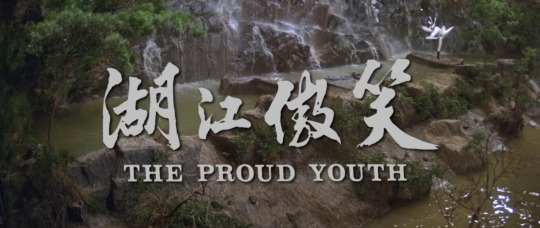
The Proud Youth (1978)
#the proud youth#Sun Chung#shaw brothers#Wong Yu#shih szu#michael chan wai-man#stanley fung#wuxia#70s movies#hong kong cinema#film#Film Review#movie review
3 notes
·
View notes
